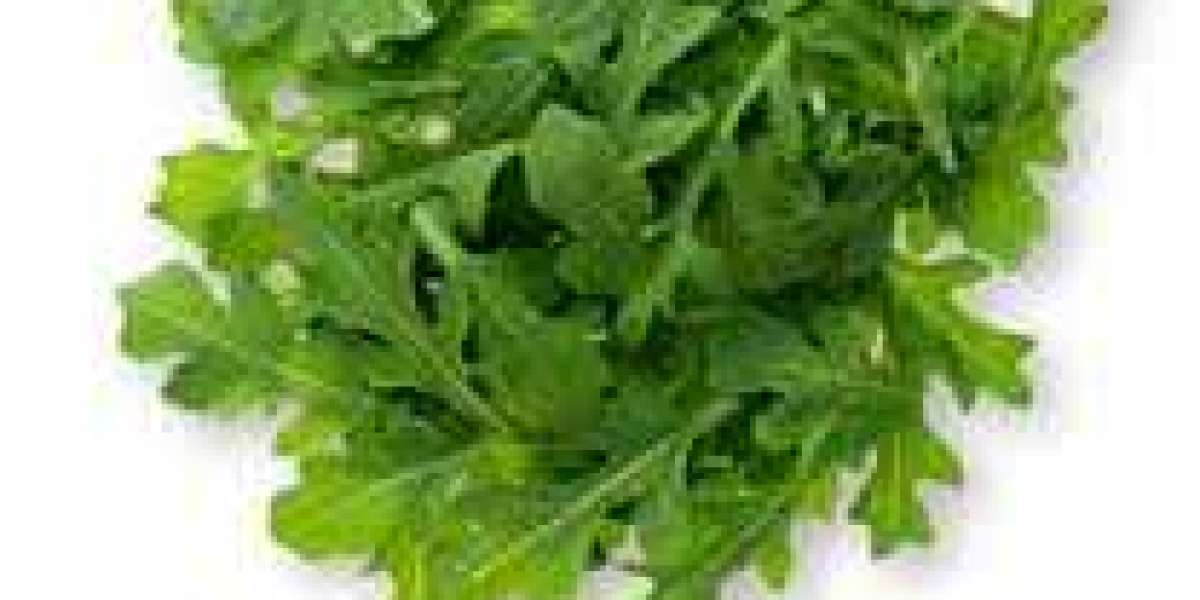Coriander leaves, also known as cilantro or coriandrum sativum, have been cherished for centuries not only for their distinctive flavor but also for their myriad health benefits. In this comprehensive guide, we delve deep into the wonders of coriander leaves, exploring their nutritional value, culinary uses, and potential health perks.
Nutritional Powerhouse
Coriander leaves are packed with essential vitamins and minerals, making them a valuable addition to any diet. They are particularly rich in vitamin K, vitamin C, and manganese, which play crucial roles in maintaining overall health. Additionally, coriander leaves contain dietary fiber, aiding in digestion and promoting gut health.
Culinary Delight
In the culinary world, coriander leaves are revered for their unique flavor profile, adding a refreshing zest to a wide array of dishes. From vibrant salads to flavorful curries, these versatile leaves can elevate any meal. Their bright, citrusy aroma pairs perfectly with spices like cumin, turmeric, and chili, creating complex and aromatic flavors.
Health Benefits
Beyond their culinary appeal, coriander leaves boast an impressive array of health benefits. Research suggests that they may help lower cholesterol levels, reduce blood pressure, and aid in digestive health. Furthermore, the antioxidant properties of coriander leaves may contribute to anti-inflammatory effects, potentially reducing the risk of chronic diseases.
Digestive Aid
Coriander leaves have long been used in traditional medicine as a digestive aid. They contain compounds that stimulate enzymes in the digestive tract, promoting healthy digestion and alleviating symptoms of indigestion and bloating. Incorporating coriander leaves into your diet may help soothe gastrointestinal discomfort and support overall digestive wellness.
Anti-Inflammatory Properties
In addition to their digestive benefits, coriander leaves exhibit potent anti-inflammatory properties. Certain compounds found in coriander leaves, such as linalool and borneol, have been shown to reduce inflammation in the body. Regular consumption of coriander leaves may help mitigate the risk of inflammatory conditions like arthritis and cardiovascular disease.
Rich in Antioxidants
Coriander leaves are a rich source of antioxidants, which play a crucial role in protecting the body against oxidative stress and cellular damage. These antioxidants help neutralize harmful free radicals, thereby reducing the risk of chronic diseases and supporting overall health and longevity.
Culinary Uses
Incorporating coriander leaves into your culinary repertoire is easy and rewarding. They can be used fresh or dried, adding a burst of flavor to soups, stews, sauces, and marinades. Sprinkle chopped coriander leaves over grilled meats or fish for a vibrant finishing touch, or blend them into creamy dips and dressings for a refreshing twist.
Potential Side Effects and Precautions
While coriander leaves offer a plethora of health benefits, it's essential to be mindful of potential side effects and precautions. Some individuals may experience allergic reactions to coriander leaves, particularly those with allergies to plants in the Apiaceae family, such as celery, parsley, and fennel. Symptoms of an allergic reaction may include itching, hives, or difficulty breathing and require immediate medical attention.
Furthermore, coriander leaves contain compounds known as coumarins, which may have blood-thinning properties. Individuals taking blood-thinning medications or with bleeding disorders should exercise caution when consuming large amounts of coriander leaves to avoid potential interactions and adverse effects.
Culinary Inspiration: Vidalista 40
Looking for creative ways to incorporate coriander leaves into your culinary creations? Look no further than Vidalista 40, a delicious and nutritious dish that showcases the vibrant flavors of coriander leaves. This tantalizing recipe combines tender chicken or tofu with an aromatic blend of spices and fresh coriander leaves, resulting in a mouthwatering meal that's sure to impress.
To make Vidalista 40, start by marinating your protein of choice in a mixture of yogurt, lemon juice, garlic, ginger, and ground coriander. Allow the flavors to meld for at least an hour, then sauté the marinated protein in a pan until golden brown and cooked through. In a separate pan, heat a splash of oil and sauté onions, tomatoes, green chilies, and a generous handful of chopped coriander leaves until fragrant and tender.
Next, add the cooked protein to the pan with the onion mixture and simmer gently until the flavors meld together. Serve hot, garnished with a sprinkle of fresh coriander leaves and a squeeze of lemon juice for an extra burst of brightness. Vidalista 40 pairs perfectly with steamed rice, naan bread, or a crisp green salad for a satisfying and wholesome meal.
Cultivating Coriander at Home
For those with a green thumb, growing coriander at home is a rewarding and straightforward endeavor. Coriander is a fast-growing herb that thrives in well-drained soil and full sunlight. Start by sowing coriander seeds directly into the ground or a large pot filled with rich, loamy soil. Water the seeds regularly to keep the soil moist but not waterlogged, and within a few weeks, you'll be rewarded with lush, fragrant coriander leaves ready for harvest.
To ensure a continuous supply of fresh coriander leaves, stagger your plantings every few weeks to extend the harvest season. When harvesting coriander leaves, opt for young, tender leaves at the top of the plant, as they boast the most robust flavor. Use a sharp pair of scissors to snip off the leaves as needed, being careful not to damage the stem or roots.
Conclusion
In conclusion, coriander leaves are not only a culinary delight but also a nutritional powerhouse with numerous health benefits. Whether you're adding them to your favorite recipes or enjoying them as a garnish, incorporating coriander leaves into your diet can enhance both the flavor and nutritional value of your meals. So why not embrace the goodness of coriander leaves and experience the wonders they have to offer?



